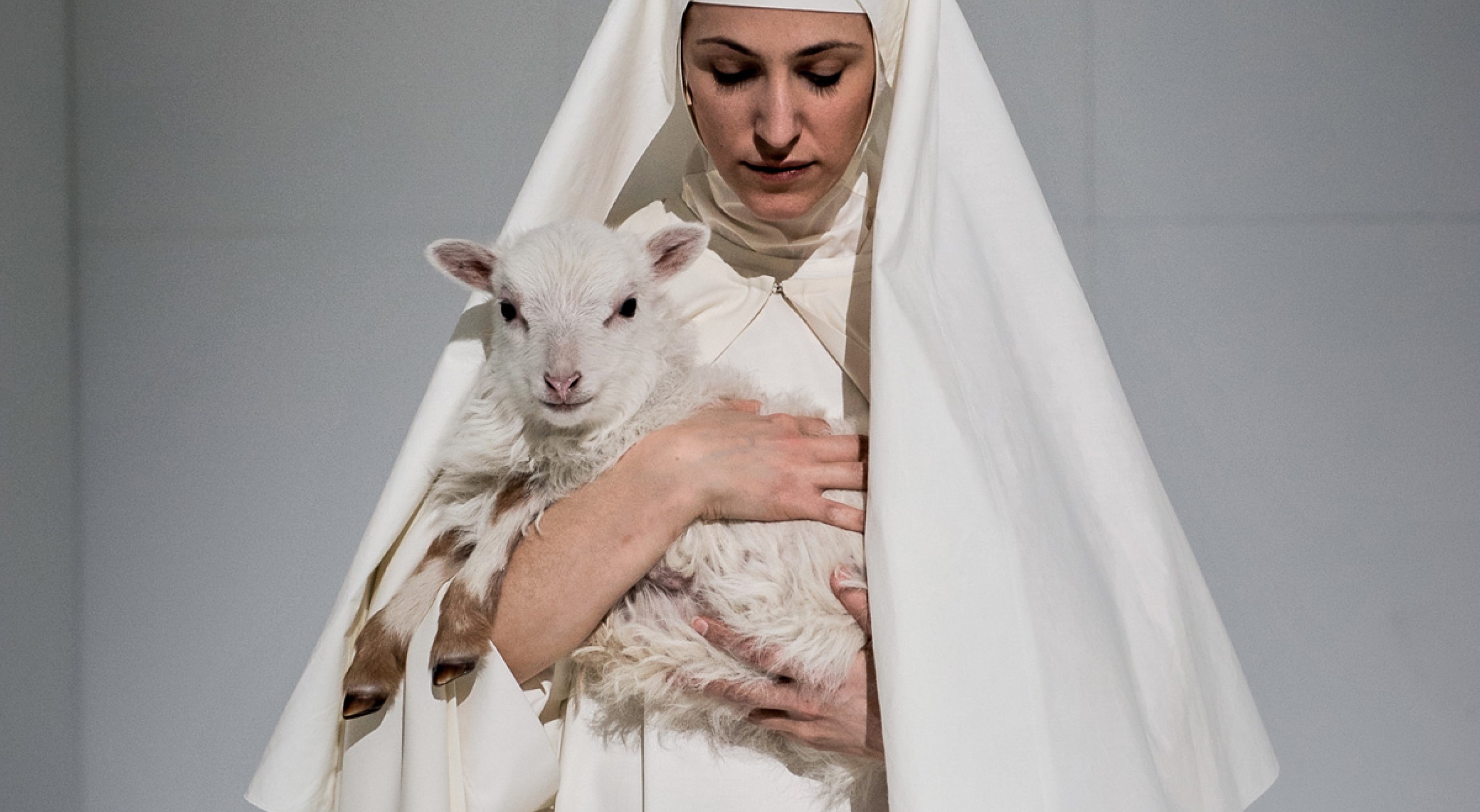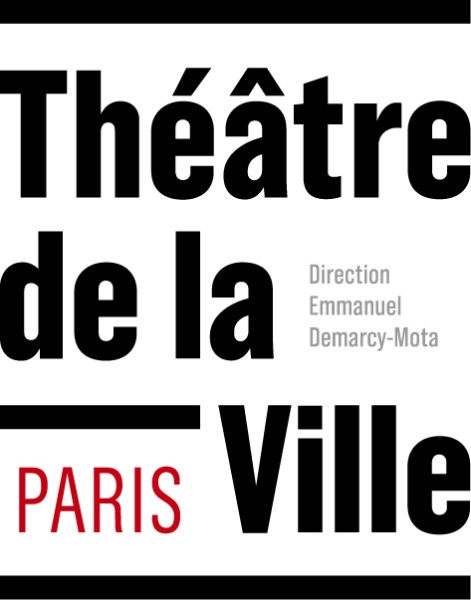Romeo Castellucci
Ödipus der Tyrann
de Friedrich Hölderlin, d’après Sophocle
novembernov 20 – 24
Directed, stage and costume design by Romeo Castellucci
With Bernardo Arias Porras, Iris Becher, Jule Böwe, Rosabel Huguet, Ursina Lardi, Angela Winkler
Artistic collaboration, Silvia Costa
Music, Scott Gibbons
Dramaturgy, Piersandra Di Matteo, Florian Borchmeyer
Prompter, Timo Kreuser
Soloists, Sirje Aleksandra Viise, Eva Zwedberg //
Assistant stage design, Mechthild Feuerstein
Lighting design, Erich Schneider
Video design, Jake Witlen
Sculptures, Giovanna Amoroso, Istvan Zimmermann - Plastikart Studio
Extras, Malene Ahlert, Amelie Baier, Ursula Cezanne, Sophia Fabian, Eléna Fichtner, Margot Fricke, Eva Günther, Rachel Hamm, Andrea Hartmann, Annette Höpfner, Nadine Karbacher, Sara Keller, Pia Koch, Feline Lang, Marion Neumann, Monika Reineck, Vanessa Richter, Helga Rosenberg, Ria Schindler, Janine Schneider, Regina Törn, Christina Wintz
A Schaubühne Berlin production// In partnership with Théâtre de la Ville-Paris ; Festival d’Automne à Paris
In association with France Culture
No stranger to hard-fought battles on theatre stages, Romeo Castellucci, now turns his attentions, for the very first time, to a dialogue-based piece, and a pre-existing troupe. And what a troupe it is - none other than the Schaubühne troupe, backed up by Angela Winkler. And what a piece it is too - Ödipus der Tyrann, in Hölderlin’s translation of Sophocles’ rendering of the heroic myth. Castellucci undoubtedly must have felt the need to undergo the rigours of the opera (Parsifal, Orfeo ed Euridice, Moïse und Aaron) in order to convince himself that inhabiting the poem in its original construction was now possible. After drawing from The Death of Empedocles in composing The Four Seasons Restaurant, and from Hyperion in Hyperion. Briefe eines Terroristen, the Italian director now tackles Ödipus der Tyrann in its entirety - in a fraternal embrace with the poet. It is an acknowledgement of what stirs him to very core in his rediscovery of Attic tragedy, the affirmation of the “feminine” and the “oriental” in ancient Greek thought. In opposition to this closed voice, which is also Tiresias’s, comes the open voice of Oedipus, and with it, reason which is blind to the sighted, and beyond mystery’s reach. Summoned by Romeo Castellucci from the interior of a convent for women and then on a Theban parvis, we are confronted with two spoken words, two civilizations - Greek and Christian - which interpenetrate and contaminate each other, mutually revealing themselves in the process. From out of this arises an engendering of a stupefying nature, the hallmark of the mastery and audacity of a true poet of the stage.
In the same place

